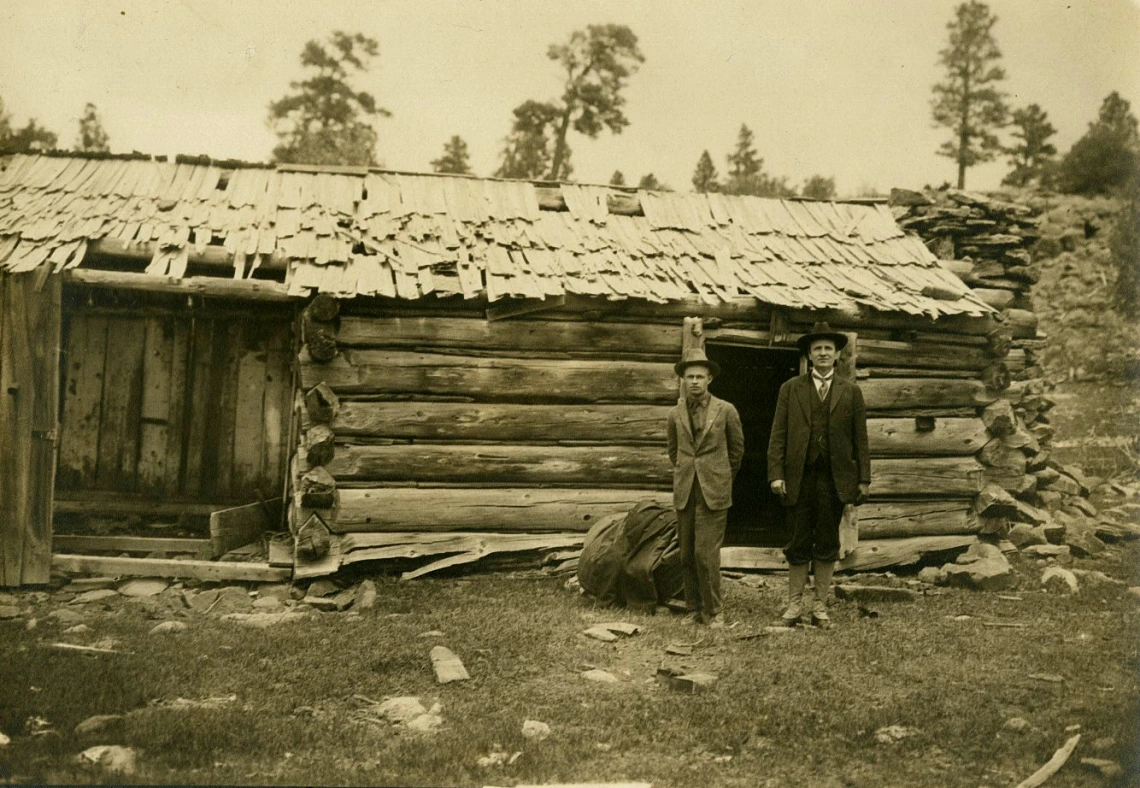Henry Fountain Ashurst papers

Photograph of Senator Ashurst on Left with Father at Old Ashurst Ranah, Coconino County, 1919.
Collection area: Political Affairs
Collection dates: 1896-1963 bulk (bulk 1920-1962)
Correspondence, typescripts of speeches, and biographical materials, including clippings, photographs, diary, expense records, cartoons, and reprints relating to his career and studies of his career by George Fray Sparks and others.
Senator from Arizona; born in Winnemucca, Humboldt County, Nev., September 13, 1874; moved with his parents to Arizona in 1875 and settled near the present town of Flagstaff, Coconino County; attended the public schools of Flagstaff and was graduated from the Stockton (Calif.) Business College in 1896; studied law and political economy at the University of Michigan at Ann Arbor; was admitted to the bar in 1897 and commenced practice in Williams, Ariz.
Ashurst was a member of the Territorial house of representatives in 1897 and 1899, serving as speaker in 1899; served in the Territorial senate in 1903; district attorney of Coconino County 1905-1908; moved to Prescott, Ariz., in 1909 and continued the practice of law; upon the admission of Arizona as a State was elected as a Democrat to the United States Senate on March 27, 1912 and served to January 3, 1941.
Senator Ashurst was chairman of the Committee on Indian Affairs (Sixty-third through Sixty-fifth Congresses), Committee on Industrial Expositions (Sixty-third Congress), Committee to Investigate Trespassers on Indian Land (Sixty-sixth Congress), and the Committee on the Judiciary (Seventy-third through Seventy-sixth Congresses). Ashurst was appointed a member of the Board of Immigration Appeals in the Department of Justice on April 8, 1941, and served until February 28, 1943, when he retired. Senator Ashurst died in Washington, D.C., May 31, 1962.
A collection guide explains what's in a collection. New to using our collections? Learn how to use a collection guide.
Collection guideAccess this collection
Visit us in person to access materials from this collection. Our materials are one-of-a-kind and require special care, so they can’t be checked out or taken home.
How to cite
Learn how to cite and use materials from Special Collections in your research.
